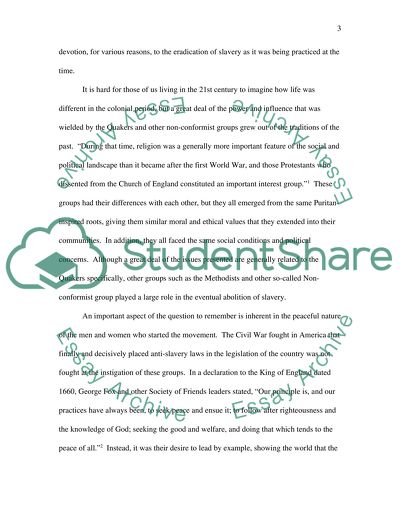Cite this document
(“Conscience and politics: the rise of the 'Social Conscience' in Essay”, n.d.)
Conscience and politics: the rise of the 'Social Conscience' in Essay. Retrieved from https://studentshare.org/miscellaneous/1537131-conscience-and-politics-the-rise-of-the-social-conscience-in-anti-slavery-campaigners-and-nonconformists-question-why-were-fringe-protestant-groups-such
Conscience and politics: the rise of the 'Social Conscience' in Essay. Retrieved from https://studentshare.org/miscellaneous/1537131-conscience-and-politics-the-rise-of-the-social-conscience-in-anti-slavery-campaigners-and-nonconformists-question-why-were-fringe-protestant-groups-such
(Conscience and Politics: the Rise of the 'Social Conscience' In Essay)
Conscience and Politics: the Rise of the 'Social Conscience' In Essay. https://studentshare.org/miscellaneous/1537131-conscience-and-politics-the-rise-of-the-social-conscience-in-anti-slavery-campaigners-and-nonconformists-question-why-were-fringe-protestant-groups-such.
Conscience and Politics: the Rise of the 'Social Conscience' In Essay. https://studentshare.org/miscellaneous/1537131-conscience-and-politics-the-rise-of-the-social-conscience-in-anti-slavery-campaigners-and-nonconformists-question-why-were-fringe-protestant-groups-such.
“Conscience and Politics: the Rise of the 'Social Conscience' In Essay”, n.d. https://studentshare.org/miscellaneous/1537131-conscience-and-politics-the-rise-of-the-social-conscience-in-anti-slavery-campaigners-and-nonconformists-question-why-were-fringe-protestant-groups-such.


